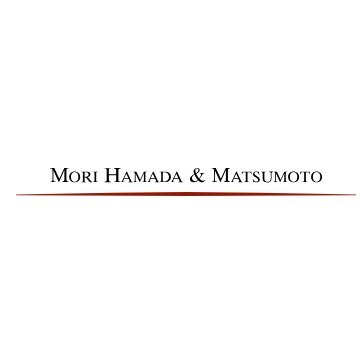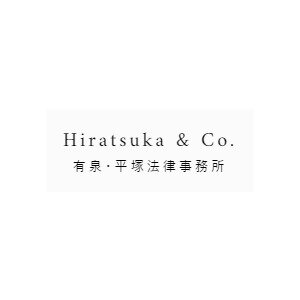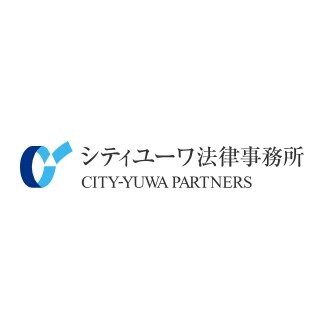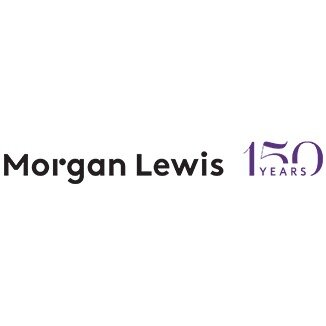Best Public-Private Partnerships (PPP) Lawyers in Chiyoda-ku
Share your needs with us, get contacted by law firms.
Free. Takes 2 min.
List of the best lawyers in Chiyoda-ku, Japan
About Public-Private Partnerships (PPP) Law in Chiyoda-ku, Japan
Public-Private Partnerships, or PPP, are collaborative agreements between government bodies and private sector entities to deliver public services or infrastructure projects. In Chiyoda-ku, Tokyo, PPPs have become an important approach for advancing urban development, infrastructure modernization, and the efficient provision of public facilities. Japan’s national laws, including the Act on Promotion of Private Finance Initiative (PFI Act), provide the basic legal framework. Local governments, like Chiyoda-ku, adapt these frameworks to match local needs and priorities. Chiyoda-ku’s unique status as a central business and administrative district means its PPP projects can involve everything from transportation facilities and public housing to cultural centers and parks.
Why You May Need a Lawyer
Public-Private Partnerships often involve complex legal structures and significant investments. Here are some common situations in which you may need legal assistance regarding PPP in Chiyoda-ku:
- Drafting, reviewing, or negotiating PPP contracts and agreements
- Understanding the division of responsibilities and risk allocation between public and private partners
- Navigating public procurement and bidding processes
- Ensuring compliance with both national and local laws and regulations
- Resolving disputes between the parties involved in a PPP contract
- Managing intellectual property or proprietary technology rights used in a PPP project
- Securing project financing from Japanese or international lenders
- Dealing with foreign investment or cross-border aspects, especially for non-Japanese companies
- Obtaining necessary permits, licenses, and clearances from local authorities
- Protecting community and environmental interests during project implementation
Local Laws Overview
PPP projects in Chiyoda-ku must comply with both national and local regulations. Key aspects include:
- National Framework: The PFI Act (Act No. 117 of 1999) sets out the principles and procedures for PPP and PFI projects across Japan, including eligibility, bidding, operation, and oversight.
- Local Adaptation: The Chiyoda-ku municipal government issues additional guidelines and policies for the implementation of PPP within the district, adapting national laws to local circumstances.
- Procurement Rules: All PPP projects are subject to public procurement procedures that mandate transparency, equal access, and fair competition according to both the PFI Act and local ordinances.
- Land Use and Development Law: Projects must comply with zoning, urban planning, and environmental regulations set forth by Chiyoda-ku and the Tokyo Metropolitan Government.
- Oversight and Monitoring: Local governments are required to monitor project progress, ensure public interest is protected, and provide accountability mechanisms such as public hearings.
- Dispute Resolution: Legal frameworks stipulate procedures for the resolution of PPP-related disputes, often encouraging mediation and arbitration before court involvement.
Frequently Asked Questions
What is a Public-Private Partnership (PPP)?
A PPP is a long-term agreement between a government entity and a private sector company to finance, build, and operate projects that serve the public, such as schools, hospitals, or highways.
What types of projects are typically developed through PPP in Chiyoda-ku?
Projects may include public transportation upgrades, renewable energy facilities, urban redevelopment, public housing, IT infrastructure, education, and community amenities.
Do PPP agreements require public bidding in Chiyoda-ku?
Yes, public bidding is generally required to ensure transparency, fair competition, and optimal use of public resources, though there may be limited exceptions under certain circumstances.
How is risk shared between public and private partners?
Risk distribution depends on the project type and contract terms, but typically, financial risk, construction risk, and operational responsibilities are allocated to the parties best placed to manage them.
What legal documents are needed to set up a PPP?
Key documents include a project agreement or concession contract, financing agreements, technical and service specifications, performance guarantees, and compliance documentation.
Can foreign companies participate in PPP projects in Chiyoda-ku?
Yes, foreign companies may participate, but they must comply with Japanese law, local regulations, and any restrictions specified during the bidding process.
How long do PPP contracts typically last?
PPP contracts often last 10 to 30 years, depending on the scale and nature of the project, with specific terms set forth in the contract.
What are the main sources of financing for PPP projects?
Sources include bank loans, government grants, private equity, bond issuance, and sometimes international development funds, depending on the project's scope.
Are there any incentives for using PPP structures in Chiyoda-ku?
Certain projects may receive preferential tax treatment, fast-track permitting, or access to government subsidies, subject to Chiyoda-ku or Tokyo Metropolitan Government policies.
What can I do if a dispute arises during a PPP project?
Disputes can often be resolved through mediation or arbitration as stipulated in the contract, but legal action in Japanese courts is also an option if necessary.
Additional Resources
If you need further information or support, consider these resources:
- Chiyoda-ku Government Office (Chiyoda-ku Yakusho): The district office handles local permits, public bidding notices, and community consultation procedures related to PPP.
- Ministry of Land, Infrastructure, Transport and Tourism (MLIT): Serves as the main national authority on infrastructure PPP policy and provides guidance on best practices in project implementation.
- Japan PFI/PPP Association: An organization that offers education, networking, and resources for professionals involved in PPP projects across Japan.
- Japan External Trade Organization (JETRO): Assists foreign companies looking to participate in Japanese PPP projects with legal guidelines and market information.
- Local Bar Associations: Tokyo Bar Association and other professional bodies can refer you to attorneys with PPP expertise.
Next Steps
If you are considering involvement in a PPP project or need legal support in Chiyoda-ku:
- Identify the nature and scope of your potential involvement (private bidder, investor, government partner, or consultant).
- Gather all relevant documents and project details, including any correspondence with public bodies or private partners.
- Consult with a lawyer who specializes in Japanese PPP law, ideally with local experience in Chiyoda-ku regulations and procedures.
- Prepare a list of questions or concerns about the PPP contract, risk sharing, dispute resolution, or compliance matters.
- Be proactive in learning about project requirements, legal deadlines, and public consultation opportunities as set by Chiyoda-ku authorities.
Professional legal advice can help you avoid costly missteps and ensure the long-term success of your PPP arrangement in Chiyoda-ku, Japan.
Lawzana helps you find the best lawyers and law firms in Chiyoda-ku through a curated and pre-screened list of qualified legal professionals. Our platform offers rankings and detailed profiles of attorneys and law firms, allowing you to compare based on practice areas, including Public-Private Partnerships (PPP), experience, and client feedback.
Each profile includes a description of the firm's areas of practice, client reviews, team members and partners, year of establishment, spoken languages, office locations, contact information, social media presence, and any published articles or resources. Most firms on our platform speak English and are experienced in both local and international legal matters.
Get a quote from top-rated law firms in Chiyoda-ku, Japan — quickly, securely, and without unnecessary hassle.
Disclaimer:
The information provided on this page is for general informational purposes only and does not constitute legal advice. While we strive to ensure the accuracy and relevance of the content, legal information may change over time, and interpretations of the law can vary. You should always consult with a qualified legal professional for advice specific to your situation.
We disclaim all liability for actions taken or not taken based on the content of this page. If you believe any information is incorrect or outdated, please contact us, and we will review and update it where appropriate.














